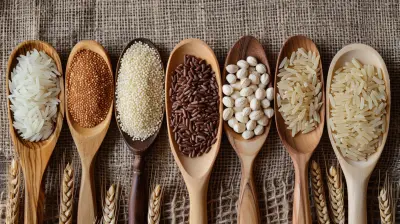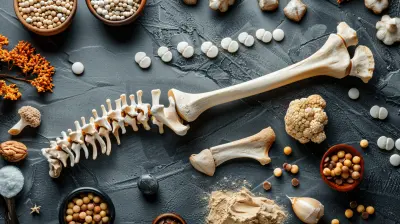The Power of Proper Nutrition in Muscle Recovery
26 November 2025
When it comes to building strength and endurance, people often focus on intense workouts, lifting heavier weights, or doing more reps. But few realize that muscle recovery plays an equally—if not more—critical role in the process. And guess what? Proper nutrition is the key to muscle recovery.
Your muscles don’t grow and repair in the gym. They do that when you rest, fueled by the right nutrients. So, if you’re not paying attention to what you eat post-workout, you might be sabotaging your progress without even knowing it.
Let’s break it down and see how proper nutrition can supercharge your muscle recovery and help you maximize your fitness goals.
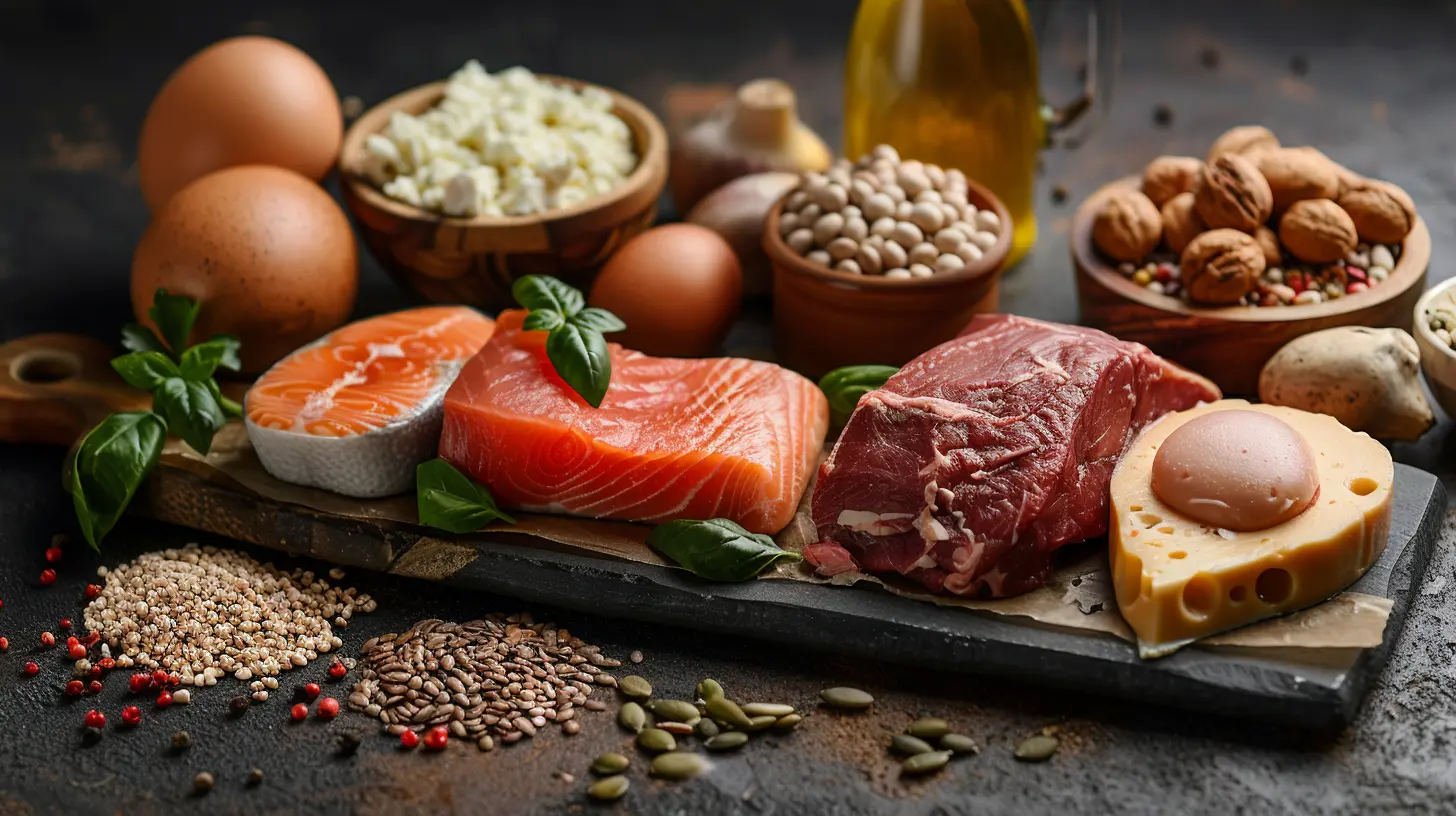
Why Muscle Recovery Is So Important
Every time you work out, especially during strength training, you create tiny tears in your muscle fibers. This is completely normal. Your body responds to this stress by repairing and rebuilding these fibers, making them stronger and more resilient over time.But here’s the catch—your body can’t fix what it doesn't have the right materials for. If you’re not giving your muscles the building blocks they need, recovery slows down, leading to fatigue, soreness, and even an increased risk of injury.
That’s where proper nutrition comes in, ensuring that your muscles heal quickly and effectively, so you can hit your next workout at full strength. 
Essential Nutrients for Muscle Recovery
Now, let’s talk about the major nutrients that play a role in muscle recovery and why they matter.1. Protein – The Building Block of Muscles
Protein is non-negotiable when it comes to muscle recovery. When you work out, your muscles experience microscopic damage. Protein helps rebuild these fibers, making them bigger and stronger.The best sources of protein include:
- Lean meats (chicken, turkey, beef)
- Fish (salmon, tuna, cod)
- Eggs
- Dairy products (Greek yogurt, cottage cheese)
- Plant-based options (lentils, quinoa, tofu, chickpeas)
For optimal recovery, aim to consume 20-40 grams of protein after your workout. This helps jump-start the repair process and ensures your body has what it needs to rebuild muscle tissue.
2. Carbohydrates – Refueling Your Energy Stores
Carbs often get a bad rap, but they’re essential for recovery. Your muscles store energy in the form of glycogen, which gets depleted during exercise. After a workout, replenishing these stores helps fuel your body for the next session.Some great post-workout carb options include:
- Whole grains (brown rice, quinoa, whole wheat bread)
- Starchy vegetables (sweet potatoes, squash, peas)
- Fruits (bananas, berries, apples)
- Legumes (beans, lentils)
Pairing protein with complex carbs post-workout is a game-changer. It not only refuels your body but also helps speed up muscle repair.
3. Healthy Fats – Supporting Recovery and Reducing Inflammation
Fats might not be the first thing that comes to mind when thinking about muscle recovery, but they play a supportive role, especially in reducing inflammation. Healthy fats also contribute to overall hormone balance, which is crucial for muscle growth.Some great sources include:
- Avocados
- Nuts (walnuts, almonds, cashews)
- Seeds (chia seeds, flaxseeds, pumpkin seeds)
- Olive oil and coconut oil
- Fatty fish (salmon, sardines, mackerel)
While fats aren’t as essential immediately post-workout, including them in your daily meals helps keep inflammation under control, promoting overall recovery.
4. Hydration – The Overlooked Key to Recovery
Water plays a massive role in muscle recovery, yet it’s often overlooked. Proper hydration helps transport nutrients to your muscles, flush out toxins, and reduce soreness.Dehydration can lead to muscle cramps, fatigue, and delayed recovery. So, how much should you be drinking?
- At least half your body weight in ounces per day
- More if you sweat heavily during exercise
Electrolytes also matter. Replenishing sodium, potassium, and magnesium after intense workouts can prevent muscle cramps and keep your energy levels stable.
Coconut water, electrolyte drinks, or simply adding a pinch of salt and lemon to your water can do the trick.
5. Micronutrients – The Small But Mighty Players
Vitamins and minerals play an essential role in healing and rebuilding muscle tissue. Some key players include:- Vitamin C (boosts collagen production for tendon and muscle repair) – Found in oranges, strawberries, and bell peppers.
- Vitamin D (supports muscle strength and recovery) – Get it from sunlight, fortified dairy, and fatty fish.
- B Vitamins (help with energy production) – Found in eggs, meat, and leafy greens.
- Magnesium (reduces muscle cramps and relaxes muscles) – Found in spinach, nuts, and dark chocolate.
A well-balanced diet packed with colorful fruits, vegetables, and whole foods ensures you get all these essential micronutrients. 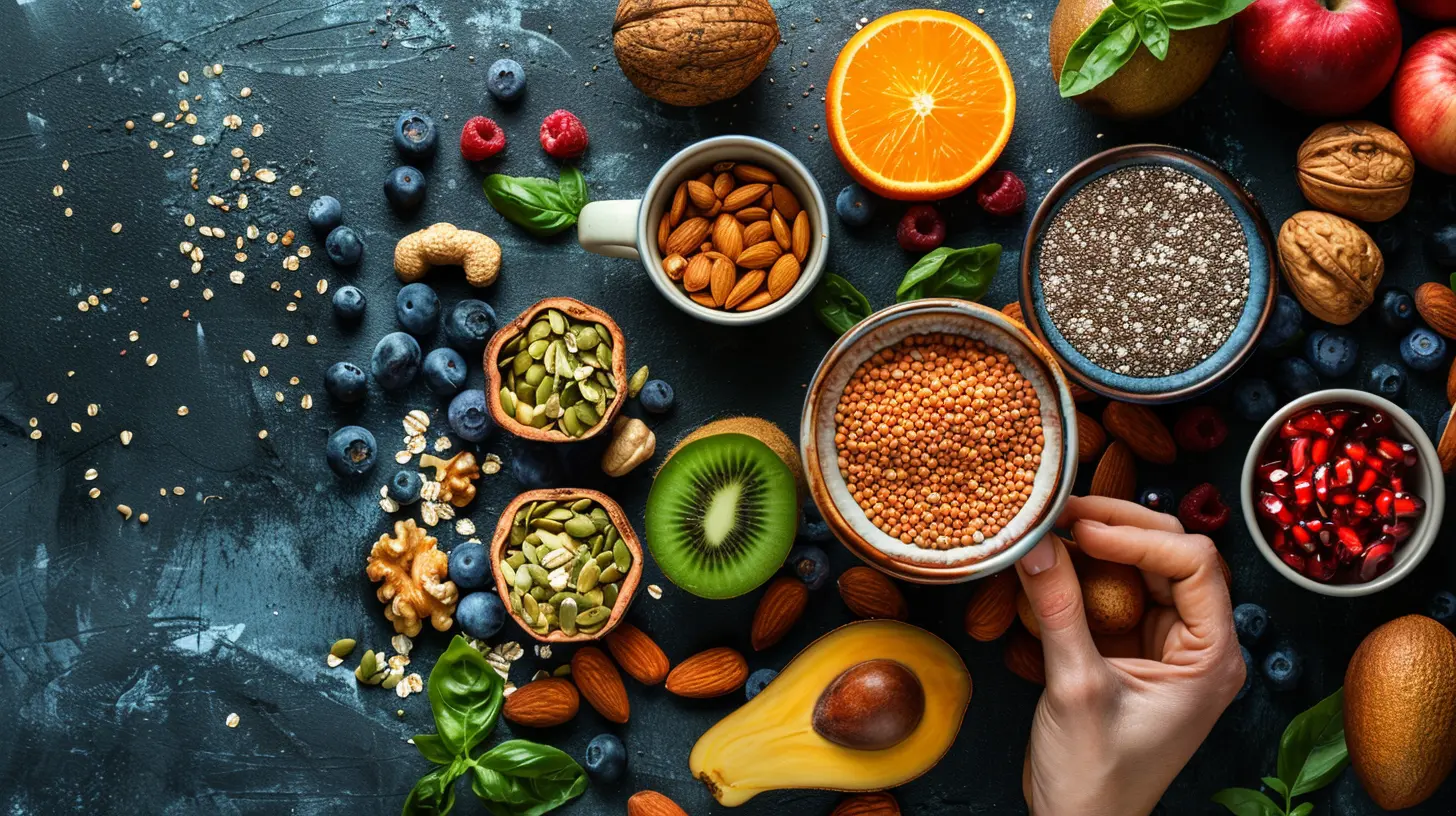
The Best Post-Workout Meal Ideas
Wondering what to eat after a workout? Here are a few meal ideas that strike the perfect balance of protein, carbs, and healthy fats:1. Grilled Chicken with Quinoa & Steamed Vegetables
A protein-packed meal with whole grains for energy and fiber-rich veggies for overall health.2. Greek Yogurt with Berries & Honey
A quick and easy snack loaded with protein, antioxidants, and natural carbs.3. Scrambled Eggs with Avocado & Whole Wheat Toast
A well-rounded meal that supports muscle recovery and keeps you feeling full longer.4. Protein Smoothie (Whey Protein, Banana, Almond Butter, Spinach)
Perfect for a quick recovery boost when you’re on the go.5. Salmon with Brown Rice & Roasted Sweet Potatoes
Packed with omega-3s, protein, and complex carbs for ultimate recovery.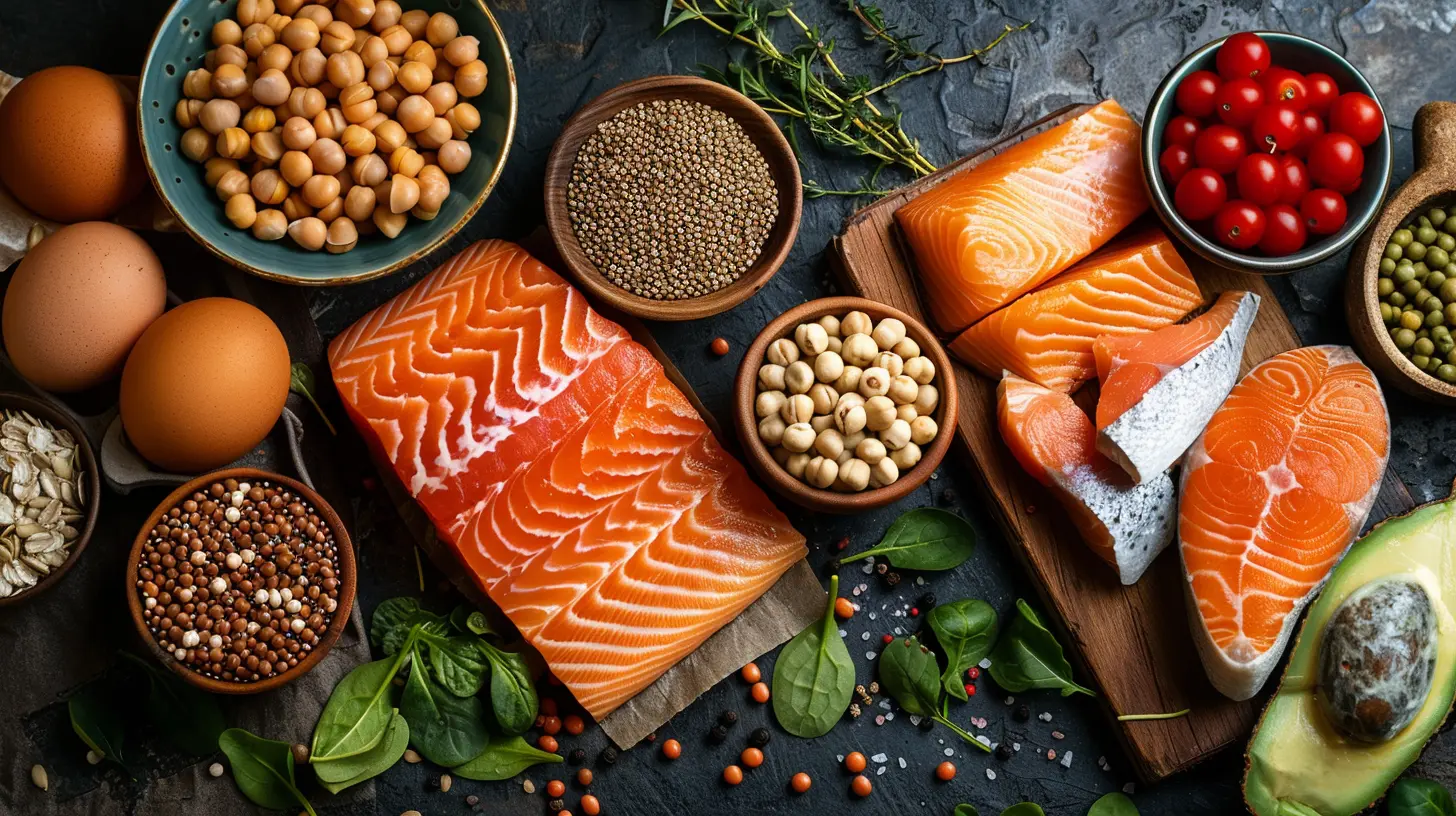
Additional Recovery Tips
While proper nutrition is crucial, it’s not the only factor in muscle recovery. Here are a few other things to consider:1. Get Enough Sleep
Muscle repair happens when you sleep. Aim for 7-9 hours per night to allow your body ample time to recover.2. Stretch and Foam Roll
These help improve blood circulation, reduce stiffness, and prevent injuries.3. Don’t Overtrain
Your body needs time to rebuild. Taking at least one rest day per week is essential.4. Manage Stress Levels
High cortisol (stress hormone) can slow down recovery. Try meditation, deep breathing, or relaxing activities.Final Thoughts
Muscle recovery isn’t just about taking a rest day—it’s about fueling your body with the right nutrients so it can repair and grow stronger. Protein rebuilds muscle fibers, carbohydrates restore energy, healthy fats reduce inflammation, and hydration keeps everything running smoothly.So, next time you finish a workout, don’t just think about what’s next in your training plan. Think about what’s next on your plate. Because the real gains happen when you fuel your body properly.
Eat well, recover smarter, and watch your fitness goals come to life!
all images in this post were generated using AI tools
Category:
Post Workout RecoveryAuthor:

Holly Ellison
Discussion
rate this article
1 comments
Ursula McCaw
Great insights! Nutrition truly plays a vital role in muscle recovery.
November 26, 2025 at 5:11 PM

Holly Ellison
Thank you! I'm glad you found it insightful. Nutrition is indeed crucial for effective muscle recovery.
